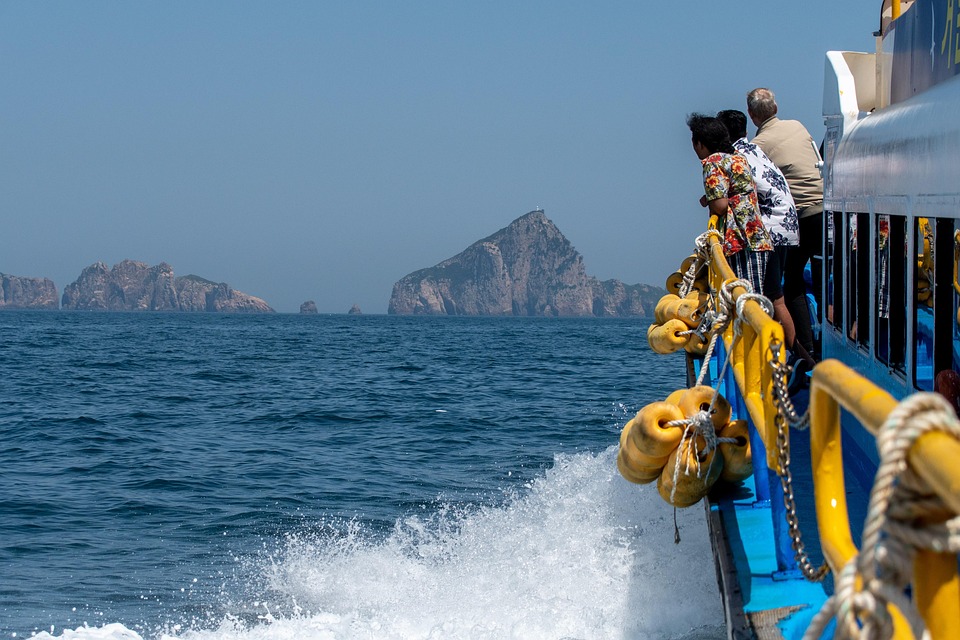Exploring Nature: The Best Eco-Tourism Destinations
Eco-tourism, a concept that champions sustainable travel, has gained significant traction over the last two decades. It promotes responsible travel to natural areas, conserving the environment, and improving the well-being of local communities. As travelers increasingly seek experiences that connect them to nature while minimizing their environmental impact, eco-tourism destinations have emerged at the forefront of the travel industry. This article explores some of the best eco-tourism destinations around the globe, highlighting unique offerings while emphasizing the importance of sustainability.
Understanding Eco-Tourism
Before diving into specific destinations, it’s essential to understand what eco-tourism is. Eco-tourism, as defined by The International Ecotourism Society, is "responsible travel to natural areas that conserves the environment, respects the culture of local communities, and promotes the welfare of local people." It involves traveling to areas with breathtaking natural beauty, rich biodiversity, and cultural significance while ensuring that tourism activities do not harm these precious ecosystems.
Principles of Eco-Tourism
-
Conservation: Protecting the environment and wildlife is central to eco-tourism. This includes preserving local flora and fauna and maintaining the integrity of natural landscapes.
-
Sustainability: Eco-tourism emphasizes sustainable practices, from the types of accommodations used to the methods of transportation chosen.
-
Community Involvement: Local communities must benefit from eco-tourism. This can involve employing local guides, supporting local businesses, and ensuring that a portion of the revenues generated through tourism go back to community projects.
-
Cultural Respect: Respecting and understanding local cultures is vital. This includes learning about traditions, customs, and the environmental practices of indigenous peoples.
- Education: Eco-tourism is about educating travelers. This can include learning about local ecosystems, conservation efforts, and the importance of sustainable practices.
Top Eco-Tourism Destinations
1. Costa Rica
Overview
Costa Rica is a pioneer in eco-tourism, known for its incredible biodiversity and extensive conservation efforts. Approximately 25% of the country’s land is protected, making it a haven for wildlife enthusiasts.
Highlights
-
Monteverde Cloud Forest: Known for its unique ecosystem, visitors can explore hanging bridges and zip-line through lush forests while experiencing diverse wildlife, including various bird species.
-
Tortuguero National Park: This national park is a key breeding ground for sea turtles. Eco-tours here often include boat rides through canals where one can spot caimans, monkeys, and an array of bird species.
- Corcovado National Park: Home to diverse wildlife, including jaguars and scarlet macaws, this park offers guided hikes that promote environmental awareness and conservation efforts.
2. New Zealand
Overview
New Zealand is famous for its stunning landscapes, from mountains and beaches to rainforests and geothermal areas. The country promotes eco-tourism through responsible travel practices.
Highlights
-
Fiordland National Park: Known for its fjords, including the famous Milford Sound, Fiordland offers opportunities for kayaking and hiking in pristine environments.
-
Abel Tasman National Park: This coastal park features golden beaches and lush forests, with walking tracks that allow visitors to experience the area’s natural beauty without disturbing the ecosystem.
- Eco-Lodges: Various eco-friendly lodges, such as the Te Waonui Forest Retreat, focus on sustainable practices, offering luxury accommodations without compromising environmental integrity.
3. Galápagos Islands, Ecuador
Overview
The Galápagos Islands are synonymous with conservation and eco-tourism, thanks to their unique ecosystems and the work of naturalist Charles Darwin. The islands are a UNESCO World Heritage site and are dedicated to preserving their natural habitats.
Highlights
-
Wildlife Encounters: Visitors can see unique species such as the Galápagos tortoise, marine iguanas, and blue-footed boobies, often found nowhere else on Earth.
-
Sustainable Tours: Many operators offer eco-friendly tours that minimize environmental impact while providing educational experiences about conservation efforts.
- Marine Reserve: The Galápagos Marine Reserve protects diverse marine life. Snorkeling and diving provide opportunities to experience this underwater paradise responsibly.
4. Madagascar
Overview
Madagascar is a treasure trove of biodiversity, with around 90% of its wildlife found nowhere else in the world. The country is committed to sustainable tourism practices to protect its unique ecosystems.
Highlights
-
Andasibe-Mantadia National Park: Known for its lemur population, this park offers hikes through lush rainforests where visitors can learn about conservation efforts.
-
Avenue of the Baobabs: This iconic landscape features towering baobab trees, and efforts are underway to protect this unique ecosystem from development and logging.
- Ecotourism Lodges: There are several eco-lodges in Madagascar that promote sustainable practices, engaging local communities, and protecting natural habitats.
5. Scandinavian Countries
Overview
Countries such as Norway, Sweden, and Finland are leaders in eco-tourism, leveraging their stunning landscapes and commitment to sustainability.
Highlights
-
Norway’s Fjords: Exploring the fjords of Norway via kayaks or eco-friendly boats allows travelers to experience synchronized eco-tourism while observing the natural beauty and local wildlife.
-
Sweden’s Treehotel: This unique hotel offers treehouse accommodations that blend with nature, emphasizing eco-friendly practices and local craftsmanship.
- Hiking in Lapland: Visitors can hike in the stunning landscapes of Lapland while learning about the Sámi culture and the importance of environmental conservation.
6. Belize
Overview
Belize is recognized for its barrier reef and diverse ecosystems. Eco-tourism initiatives have been implemented to protect marine life and support local communities.
Highlights
-
The Great Blue Hole: This underwater sinkhole is a UNESCO World Heritage Site, offering exceptional diving experiences that attract enthusiasts and promote marine conservation.
-
Wildlife Reserves: Belize’s various reserves and national parks, such as the Cockscomb Basin Wildlife Sanctuary, are committed to protecting local flora and fauna.
- Community-Based Tourism: Many eco-tourism companies in Belize work directly with local communities, promoting sustainable practices that drive economic benefits.
7. Peru
Overview
Peru is not just home to the Inca Trail and Machu Picchu but also boasts diverse ecosystems, including the Amazon rainforest. Eco-tourism here focuses on community engagement and biodiversity conservation.
Highlights
-
Amazon Rainforest Tours: Visitors can explore the Amazon through guided tours that emphasize conservation and the importance of this crucial ecosystem.
-
Cusco Region: Alongside cultural experiences, eco-friendly lodges and tours highlight local conservation efforts while offering immersive experiences in nature.
- Sustainable Practices: Local communities are engaged in eco-tourism, leading to better living conditions and the preservation of their heritage.
8. Tanzania
Overview
Tanzania offers incredible wildlife experiences, from the Serengeti to Mount Kilimanjaro. Eco-tourism here supports wildlife conservation and local communities.
Highlights
-
Serengeti National Park: The Great Migration draws travelers here, and responsible tour operators emphasize the importance of wildlife preservation.
-
Ngorongoro Crater: Considered one of the wonders of the natural world, this area is important for conserving diverse habitats and species.
- Community Involvement: Many eco-lodges partner with local communities, ensuring that tourism benefits the people living near national parks.
9. Canada
Overview
Canada is known for its vast landscapes and commitment to environmental sustainability. National parks provide the perfect backdrop for eco-friendly adventures.
Highlights
-
Banff National Park: With stunning mountains and abundant wildlife, visitors can engage in hiking, canoeing, and wildlife spotting while supporting conservation initiatives.
-
Vancouver Island: Home to eco-tourism experiences like whale watching and forest hikes, local operators often invest in sustainability and environmental education.
- Indigenous Partnerships: Many eco-tourism ventures work directly with Indigenous communities to promote cultural education and environmental stewardship.
10. South Africa
Overview
South Africa’s diverse ecosystems and rich wildlife make it a sought-after eco-tourism destination. Conservation initiatives are at the heart of many tourism experiences.
Highlights
-
Kruger National Park: Known for its wildlife diversity, responsible safari operators focus on conservation and educating visitors about local ecosystems.
-
Sani Pass: A mountain pass and eco-tourism highlight, offering stunning views while integrating sustainable travel practices.
- Community-Based Tours: Various tours involve local communities, emphasizing the role of cultural understanding in conservation efforts.
Conclusion
As the world increasingly acknowledges the importance of sustainable practices, eco-tourism offers a way for travelers to explore natural beauty while supporting conservation efforts and local communities. Each of the destinations mentioned not only showcases breathtaking landscapes but also embodies principles of environmental stewardship, responsible travel, and cultural respect.
Choosing to travel to eco-tourism destinations allows individuals to connect with nature in meaningful ways, fostering a deeper understanding and appreciation for the planet’s resources. With careful planning and consideration, eco-tourism may pave the way for a more sustainable and harmonious relationship between humans and the environment in the years to come.
In a rapidly changing world, the need for consciousness around our travel choices is more critical than ever. By supporting eco-tourism, we can all play a part in preserving the planet’s beauty for future generations, ensuring that nature remains an integral part of our shared heritage.
References
- The International Ecotourism Society. (n.d.). Ecotourism Defined. Retrieved from TIES.
- Costa Rica National Institute of Tourism. (2021). Protected Areas of Costa Rica. Retrieved from ICT.
- New Zealand Tourism Board. (2021). Eco-Tour Experiences. Retrieved from New Zealand.
- Galápagos Conservancy. (n.d.). Conservation of the Galápagos Islands. Retrieved from Galapakos Conservancy.
- Madagascar National Parks. (2021). Protected Areas of Madagascar. Retrieved from Madagascar National Parks.
- Scandinavian Tourism Board. (2021). Sustainable Travel in Scandinavia. Retrieved from Scandinavian Innovation.
- Belize Tourism Board. (2021). Exploring Belize. Retrieved from Belize Tourism.
- Peru Ministry of Foreign Trade and Tourism. (2021). Promoting Sustainable Tourism in Peru. Retrieved from Peru Travel.
- Tanzania National Parks. (2021). Wildlife Parks in Tanzania. Retrieved from Tanzania National Parks.
- Parks Canada. (2021). Protecting Canada’s Natural Heritage. Retrieved from Parks Canada.
- South African National Parks. (2021). Conservation in South Africa. Retrieved from SANParks.


























Add Comment